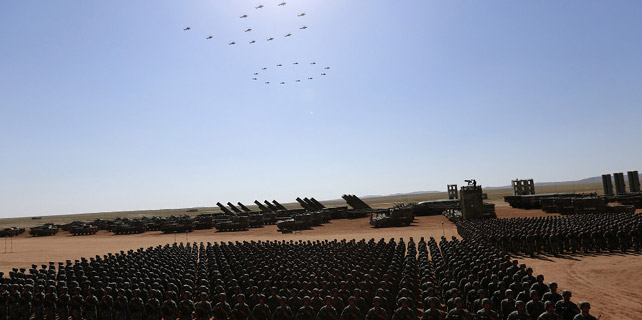Arab quartet reinstates 13 demands to talk with Qatar
MANAMA - The Saudi Arabia-led Arab alliance which severed diplomatic relations with Qatar insisted on Sunday that Doha must meet a list of 13 demands before talks to resolve the Gulf region crisis could start.
"We reiterate the importance of Qatar's compliance with the 13 demands outlined by the four states," said a joint statement released by the foreign ministers of Saudi Arabia, the United Arab Emirates, Bahrain and Egypt after a meeting in Manama, capital city of Bahrain.
"We are ready to have a dialogue provided the 13 conditions are met by Qatar," said Bahrain's Foreign Minister Sheikh Khalid bin Ahmed Al Khalifa.
On Sunday, Qatar denied that the Arab quartet would allow Qatari planes to use air corridors in emergencies, the state-run Qatar News Agency quoted Qatar's transport and communications ministry and its aviation authority as saying.
Saudi media reports were spreading "false information," it said.
The joint statement issued by the four foreign ministers also condemned Qatar's authorities for obstructing its citizens from performing Hajj while Qatar accused Saudi Arabia of refusing to guarantee the safety of Qatari pilgrims.
The four countries cut off diplomatic and transport links with Qatar on June 5, accusing the Qatari government of supporting extremist groups, interfering in their internal affairs and seeking closer ties with Iran.
Qatar has repeatedly denies the charges, citing it would not negotiate on issues related to its sovereignty.
On June 23, the four countries issued a list of 13 demands to end the rift with Doha, including stopping terrorism financing and closing Al-Jazeera television.
Other demands include cutting off Qatar-Iran diplomatic ties, shutting down a Turkish military base and handing over "terrorist figures" and "wanted individuals" to the four Arab countries.
The anti-Qatar alliance used to shortlist the 13 demands to "six principles" which they wanted Qatar to adopt, amid easing signs of the Gulf standoff following U.S. Secretary of State Rex Tillerson's visit earlier this month.
During Tillerson's visit, Qatar and the United States signed a deal on combating terrorism financing, one of the core demands of the Saudi-led alliance.
On July 21, in his first public speech since the crisis started, Qatari Emir Sheikh Tamim bin Hamad Al Thani called for holding talks to resolve the Gulf standoff, though emphasizing that any talks should be in respect of its national sovereignty.









